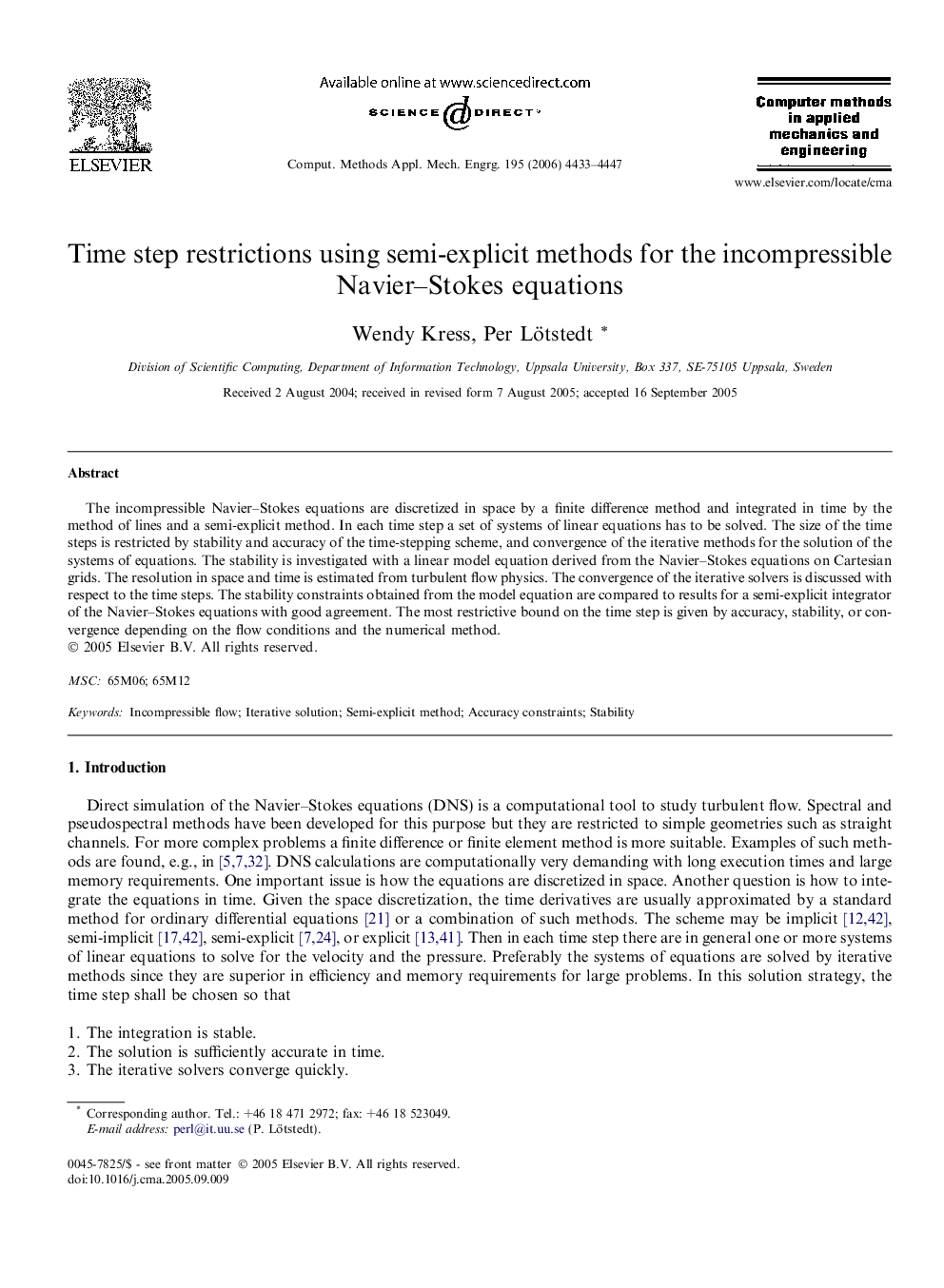| Article ID | Journal | Published Year | Pages | File Type |
|---|---|---|---|---|
| 500165 | Computer Methods in Applied Mechanics and Engineering | 2006 | 15 Pages |
The incompressible Navier–Stokes equations are discretized in space by a finite difference method and integrated in time by the method of lines and a semi-explicit method. In each time step a set of systems of linear equations has to be solved. The size of the time steps is restricted by stability and accuracy of the time-stepping scheme, and convergence of the iterative methods for the solution of the systems of equations. The stability is investigated with a linear model equation derived from the Navier–Stokes equations on Cartesian grids. The resolution in space and time is estimated from turbulent flow physics. The convergence of the iterative solvers is discussed with respect to the time steps. The stability constraints obtained from the model equation are compared to results for a semi-explicit integrator of the Navier–Stokes equations with good agreement. The most restrictive bound on the time step is given by accuracy, stability, or convergence depending on the flow conditions and the numerical method.
